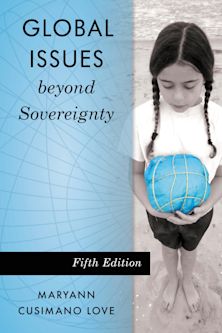Western Higher Education in Asia and the Middle East
Politics, Economics, and Pedagogy
Western Higher Education in Asia and the Middle East
Politics, Economics, and Pedagogy
For information on how we process your data, read our Privacy Policy
Description
This multidisciplinary volume highlights the transformed nature of the relationship between higher education and society in the 21st century. In particular, it argues that the development of the global university, especially in the non-western world, has transformed the traditional understanding of the relationship between higher education and society. This has important implications for the relations of state, as education has not only become an object of national development policy but for many states an important export.
The history of the university reflects the decisive social transformations which have given definition and identity to both new nations and modern societies. In the post-war period, universities in the industrialized world underwent a radical shift. The mass expansion of higher education ensured that universities were no longer centers designed to train youth to assume the leadership positions held by previous generations. Instead universities were to become centers where job skills could be imparted and knowledge produced, refined and used in the newly emerging Cold War economies, and where students could develop the skills necessary for employment in a changing world. Rather than focusing on the refinement of future leaders, the task of the university became linked to the development of economically exploitable technical knowledge.
A shift of comparable magnitude is now ongoing in the nature of higher education itself. Globalization has led to the growth of knowledge communities around the world, mirroring the rise of centers for global finance in previous decades. In the Middle East and Asia the demands of the knowledge-based economy have led to the opening of new indigenous universities and branch campuses and partnerships with established European and North American universities. Education City in Qatar, for instance, has received or been pledged more than 200 billion dollars since its inception.
The growth of new indigenous universities has altered the traditional role of the university further, increasing the emphasis on courses which are close to the marketplace. These new partnerships have contributed to the creation of what is now referred to as the global university.
Table of Contents
Ch. 2: Kevin W. Gray and Hassan Bashir, The Global University in the GCC: The Transfer and Transformation of Mission and Governance
Ch. 3: M. Ayaz Naseem and Adeela Arshad-Ayaz, Neoliberal Knowledge Imperialism: Education and Dominance in the Neoliberal Era
Ch. 4: Jerry Logan and Janel Curry, A Liberal Arts Education: Seeking Lessons from Abroad
Ch. 5: Fatima Badry and John Willoughby, State Control of Higher Education in the UAE and Qatar: Blurring the Public-Private Boundary
Ch. 6: Mark Rush and Bryan Alexander, The American Vision of Liberal Education and the Challenges of Globalization: An Exploratory Inquiry
Ch. 7: Michael Gow, Chinese Foreign Cooperatively Run Schools: An Examination of Officially Approved Transnational Higher Education Degree Programs in the People’s Republic of China
Ch. 8: Amani K. Hamdan, The Making of World Class Universities: Saudi Arabia’s Higher Education System
Ch. 9: Boufeldja Ghiat, Bologna Process and Higher Education Reforms in Algeria
Ch. 10: Mohanalakshmi Rajakumar, MOOC and Online Learning: Opportunities and Challenges
Ch. 11: John Ryder, Universities and Their Values: Higher Education in the Middle East and Beyond
Ch. 12: Nancy Small, Risking Our Foundations: Honor, Codes, and Authoritarian Spaces
Ch. 13: Thorsten Botz Bornstein, A Hermeneutic Answer to the Crisis of the Universities: The Problem of “Excellence” in the Global University
Product details
| Published | Dec 21 2016 |
|---|---|
| Format | Ebook (Epub & Mobi) |
| Edition | 1st |
| Extent | 296 |
| ISBN | 9781498526012 |
| Imprint | Lexington Books |
| Illustrations | 17 Tables, 29 BW Illustrations |
| Publisher | Bloomsbury Publishing |


































